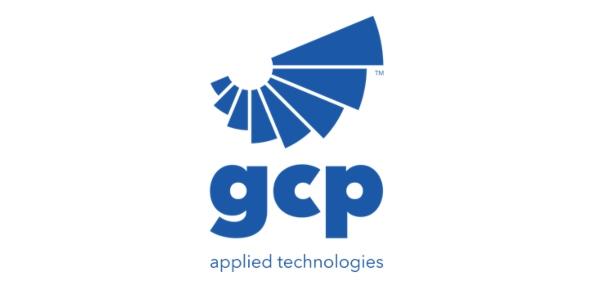UP TO THE MINUTE
Find the roofing CRM software that works for you

By Corey Mann, Leap.
Leap has found 7 of the best customer relationship management software platforms and analyzed them to help you pick the one that fits your needs.
In the digital age, technology can be a game-changing asset in the roofing industry. When used well, it is a powerful tool that makes your company more efficient and competitive by streamlining your processes. One of the ways it can be integrated in the contracting industry is through roofing customer relationship management (CRM) software. These are comprehensive programs designed to keep contractors organized, efficient and customer focused.
When a CRM software aligns with your business’ existing business processes, it can maximize the power of your operations. But if it conflicts with what you are already doing, it can be a roadblock rather than an aid. It is important to explore your options and find the right roofing CRM for your needs. Leap has analyzed the pros and cons of some of the leading CRM options to help you find the right software for managing your projects.
What is a roofing CRM?
Before we jump into specific software solutions, it’s important to understand what a modern CRM is in the first place. For starters, CRM stands for Customer Relationship Management. It’s a tool used in virtually every industry today that has now become a staple for roofing contractors.
However, the modern CRM is much more than customer relationships and lead management. It’s also perfect for workflow automation, task tracking, communications and project management.
There are a lot of moving parts to a roofing job. Consequently, various tasks and responsibilities can be overlooked or left behind completely. With an industry-specific roofing CRM, no task is left behind. You can eliminate irrelevant tasks while automating repeatable tasks to save you more time and money.
Better yet, CRM software helps your sales team provide a more professional experience for homeowners during each appointment. Instead of presenting your services via paper materials and samples, you can quickly generate estimates and contracts that are polished and branded. In addition, chicken-scratch handwriting will no longer be an issue that leads to incorrect product orders and project delays.
It’s the best tool to keep your customers engaged during the project lifecycle. According to a report by Zippia, 47% of companies saw their customer retention rate increase when they started using a CRM.
Best roofing CRM features to look for
A robust CRM software will come with a wide range of features and different pricing packages. However, not all features will carry the same value for your business. In fact, many roofing companies will never use certain features that are available to them.
To prevent this from happening, it’s important to gain a clear understanding of the software you are investing in. That way you can make the most out of the software and maximize its potential.
In general, there are specific features that always stand out for roofing contractors. For example, this includes:
- Lead management and nurturing: A central platform to intake your leads, confirm the source and quickly act upon.
- Scheduling and calendars: Automated scheduling and calendars that prevent overbooking and promote efficiency. Know what’s in the pipeline and where you have room for more appointments.
- Project management: End-to-end control and oversight of each project, from the initial contact to the installation and final inspection.
- Task and workflow management: Streamline your daily tasks and workflow to ensure your team understands their schedule and individual responsibilities.
- Forms and documents: The ability to quickly build and create digital estimates, proposals and contracts.
- Communications capabilities: Text and email automation to help you clearly communicate with customers over project details, change orders and timelines.
- Mobile accessibility: Cloud capabilities to access your data on the go whether you are on a computer, tablet or mobile device. You need software that you can access in the office, in your car, at a job site or at home.
1 - Leap
The Leap Platform is an end-to-end management platform built specifically for the home improvement industry. In 2022, Leap acquired JobProgress and its roofing CRM has become one of the industry’s leading software solutions.
Leap is well known for its intuitive and user-friendly platform that is affordable and comes with a wide range of features. The customer support is top-notch, and Leap’s CRM can grow alongside your business as you begin to scale. It’s clearly the best solution for small businesses, but is also suitable for larger roofing companies as well.
Its key features include project management, task and workflow automation, lead nurturing, subcontractor management and digital estimates and contracts. You can quickly build forms via Leap’s template features and develop pricing control so that no job is undersold. Whether you’re a family-owned business or a national franchise, Leap is a top-of-the-line CRM that you can’t go wrong with.
Pros:
- Comprehensive features: Leap offers a wide range of features, including estimating, proposal generation, contract management and CRM capabilities.
- Integration: It seamlessly integrates with various tools, enhancing workflow and reducing duplication of effort.
- Mobile app: Leap’s mobile app enables contractors to manage leads, appointments and projects on the go.
- User-friendly: Its intuitive interface makes it easy for new users to navigate and adapt.
- Pricing: Leap has a wide range of pricing packages that are affordable and include necessary features depending on the size of your business.
Cons:
- Learning curve: While user-friendly, Leap’s extensive features might require some time for users to fully grasp.
- Sales: Leap doesn’t have in-depth sales tools, but you can add Leap’s SalesPro software for an additional cost.
User review from Zach L. on Leap’s Capterra listing
“Easily the best and most customizable CRM for the industry out today. Their app is second to none and the desktop platform makes following jobs a breeze! Plus, grabbing an e-signature right on the contract on the app is cake. No extra app to use.”
2 - JobNimbus
JobNimbus is a software built for contractors with features that help you organize, track and automate your work. Its key features include lead organization, sales optimization, project management and payments.
JobNimbus is regularly considered one of the best roofing CRM solutions on the market. While it has great features and all-in-one management, it doesn’t receive the best marks for its less intuitive interface and navigation.
Pros:
- Affordability: JobNimbus offers competitive pricing plans suitable for businesses of various sizes.
- Scalability: It can accommodate both small businesses and larger enterprises as they grow.
- Customization: JobNimbus allows users to create custom fields and workflows tailored to their business processes.
- Document management: Its document storage and sharing capabilities are valuable for keeping project-related files organized.
Cons:
- Interface design: Some users find JobNimbus’s interface less intuitive compared to other CRMs.
- Limited features: While versatile, it might lack some advanced features specific to roofing workflows.
3 - AccuLynx
Acculynx is a well-known roofing software that performs well in project management and production. Its key features include activity management, tracking, bid management, estimates, billing and invoices.
Through Acculynx, you can control every step of your production and manage every job. It also includes features that strengthen your sales process. Acculynx is specifically tailored to the roofing industry as its singular focus in development.
Pros:
- Industry-specific: AccuLynx is tailored specifically for roofing contractors, ensuring that it addresses the unique needs of the industry.
- Centralized information: It centralizes job and customer information, making it easier for teams to collaborate and provide consistent customer service.
- Communication: AccuLynx facilitates seamless communication with customers through automated emails and text messages.
- Integration: It integrates with QuickBooks for efficient accounting management.
Cons:
- Cost: AccuLynx’s pricing might be on the higher side for small businesses. The company does not provide clear pricing information on their website, which doesn’t help build trust with roofing contractors.
- Complexity: Some users find its extensive features overwhelming, especially for smaller companies with simpler needs.
- Mobile usability: Its features are better suited for desktop usage, and do not translate as well to its mobile application.
4 - Jobber
Jobber is a field service management software that helps you organize your business and impress your customers. While it’s not highly focused on the roofing industry, it’s well known for its customizable features that suit many industries.
Jobber ranks highly in business management and organization. Its key features include client management, online bookings, scheduling and dispatching.
Pros:
- Versatility: Jobber caters to various service industries, including roofing and offers customizable features.
- Scheduling: Its scheduling tools help roofing contractors manage appointments efficiently.
- Quoting and invoicing: Jobber simplifies the process of creating quotes and invoices.
- Mobile app: The mobile app allows field workers to stay connected and update job details in real time.
Cons:
- Learning curve: Jobber’s extensive customization options can lead to a learning curve for new users.
- Feature limitations: Some roofing-specific features might not be as robust as those offered by industry-focused CRM solutions.
5 - Roofr
Roofr makes this list due to its robust sales features, but it’s less suited for overall management and communications. Roofr excels with its instant estimates, measurement reports and quick proposals.
This is great software for managing your sales pipeline. It will surely give your sales reps a boost. However, its communication features are lacking, and its project management is less advanced.
Pros:
- Roofing network: Roofr connects roofing contractors with customers seeking services, potentially providing a consistent stream of leads.
- Simplified quoting: Its focus on automated and standardized quoting can save time for contractors.
- Lead management: Roofr streamlines lead management and appointment booking through its platform.
Cons:
- Dependency: Contractors relying solely on Roofr might have limited control over their lead generation process.
- Lack of customization: The platform’s standardized quoting might not accommodate complex project requirements.
- Project management: These features are much less advanced than their competitors.
6 - RoofSnap
RoofSnap is growing quickly due to its great measurement services. You can measure roofs, create material orders and sign contracts from anywhere with this application.
While it does fall into the roofing CRM category, its customer relationship management is not a major selling point. Nevertheless, its innovative measurement service helps RoofSnap make this list.
Pros:
- Visual estimations: RoofSnap offers tools for creating accurate roof measurements and estimates using satellite imagery.
- Integration: It integrates with many roofing material suppliers, simplifying the ordering process.
- Pitched roof analysis: The software’s ability to analyze pitched roofs can aid in accurate planning.
Cons:
- Specialized use: RoofSnap’s primary strength lies in measurements and estimation, potentially requiring additional software for broader CRM needs.
- Learning curve: The advanced measurement features might take time for users to master.
7 - iRoofing
The last software to make the list is iRoofing. It’s a lesser-known roofing CRM that stands out for its customer support and roofing logistics. Its key features include its AI-based roof visualizer and aerial measurement capabilities.
You can also produce instant estimates based on your pricing with iRoofing. Unfortunately, it receives lower marks for integrations and overall CRM functionality.
Pros:
- Mobile-friendly: iRoofing’s mobile app supports remote project management and collaboration.
- Visual presentations: Its visual tools assist contractors in creating impressive presentations for clients.
- Material ordering: iRoofing simplifies the process of ordering roofing materials through its platform.
Cons:
- Limited features: Some users find iRoofing lacking in certain advanced CRM functionalities.
- Integration: While it offers integration with QuickBooks, it might not integrate as seamlessly with other software.
Choosing the right roofing CRM
As the roofing industry continues to evolve, having reliable CRM software becomes indispensable for managing customer relationships, streamlining operations and improving business efficiency. Each of the reviewed software solutions brings unique strengths and weaknesses to the table.
Therefore, it’s essential for roofing professionals to carefully evaluate their business requirements and prioritize features that align with their needs. Ultimately, choosing the right roofing CRM software can make a significant impact on your success as we head into 2024. Consider many factors when making your decision, such as pricing, ease of use, customer support and long-term goals.
Original article source: Leap



















Comments
Leave a Reply
Have an account? Login to leave a comment!
Sign In